Tourism for Tomorrow: the hotels and travel organisations making the world a little better
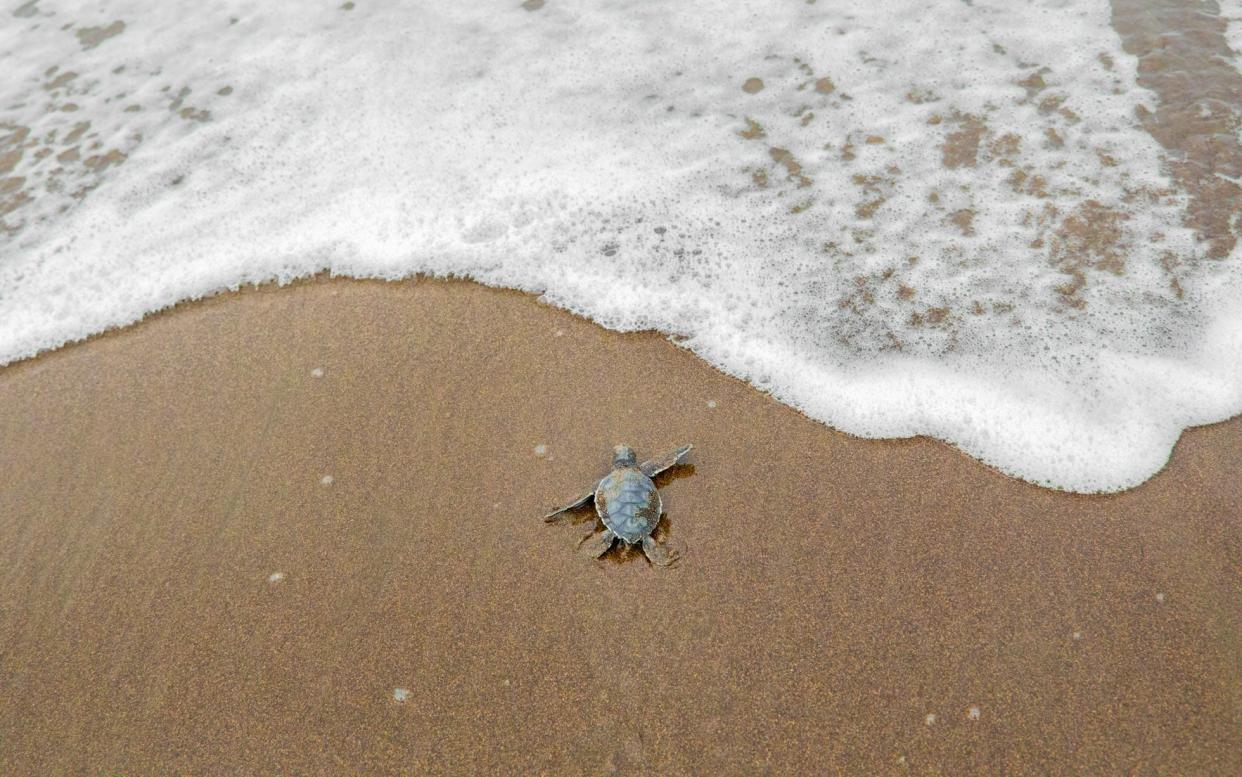
Anyone looking for a holiday with a clean conscience is in luck, whether it be a carbon-neutral luxury hotel or an organisation that has saved over 1.7 million turtle hatchlings.
The world’s most sustainable and progressive travel organisations have been revealed by the World Travel and Tourism Council (WTTC), which this morning announced the winners in its 2019 Tourism for Tomorrow Awards at its global summit in Seville.
The Tourism for Tomorrow Awards, now in its 15th year, shines a spotlight on the organisations with a strong commitment to supporting change, transformation in business practices and consumer behaviour towards a more environmentally conscious travel sector.
“We need to recognise the changing attitudes and values of today’s tourists,” said Fiona Jeffery, chair of the Tourism for Tomorrow awards. “These organisations believe there is a better way of doing things than has been done before. They see a more meaningful way of doing business with a broader purpose.”
Telegraph Travel is delighted to reveal this year’s winners in the Tourism for Tomorrow Awards.
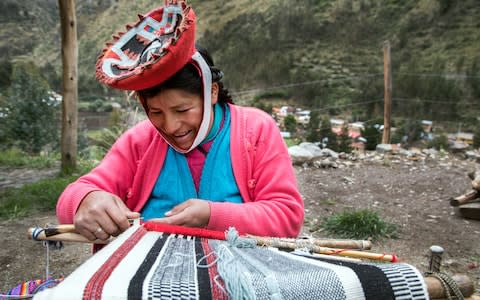
For a carbon-neutral luxury holiday
Winner of the Climate Action award: Bucuti & Tara Beach Resort, Aruba
On the face of it, the Bucuti & Tara Beach Resort appears to be nothing more than another spectacularly indulgent Caribbean destination. Set on the white sands of Eagle Beach – one of the finest in Aruba – this luxurious, adult-only resort has relaxation and romance at the heart of everything it does.
What visitors may not realise, however, is that this is the Caribbean’s only carbon-neutral resort. Its trailblazing environmentalist owner, Ewald Biermans, has proven that implementing a sustainability-first ethos does not need to come at the expense of reduced guest satisfaction.
The journey towards becoming entirely carbon neutral began seven years ago, when the resort’s ‘Green Team’ implemented clean energy initiatives, such as supporting the local wind energy farm. The resort also has in-room energy management systems, low-flow shower heads and toilets, and it uses an ozone-based laundry system – a method of textile care that uses electricity and oxygen to reduce the need of many polluting chemicals usually used in the washing process.
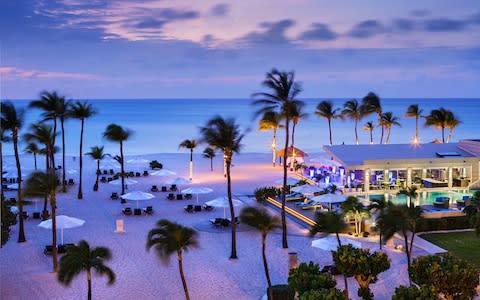
One of the highlights of a visit to Bucuti & Tara Beach Resort is to witness a turtle nesting or a nest hatching, or to embark on a turtle diving trip.
Runners up:
The Brand, Tetiaroa Private Island, French Polynesia
Tourism Holdings Limited, New Zealand
For a hotel with a social focus
Winner of the Investing in People award: Lemon Tree Hotels Limited, India
Across the world, approximately 35 per cent of people with disabilities are employed. In India, it’s less than three per cent. Large numbers are also economically or socially marginalised, for example those who live below the poverty line, are widowed or orphaned; grow up in one of these families and your chances of future employment are low.
But there are some organisations making positive steps to remedy this. The mid-range hotel chain, Lemon Tree Hotels, has built a socially inclusive working environment that actively seeks to employ people from all different backgrounds, ethnicities and abilities. On its staff list are people with Down’s Syndrome, autism, visual impairment, survivors of acid attacks and those with orthopaedic handicaps. By September 2018, 16 per cent of the workforce was classified as opportunity deprived.
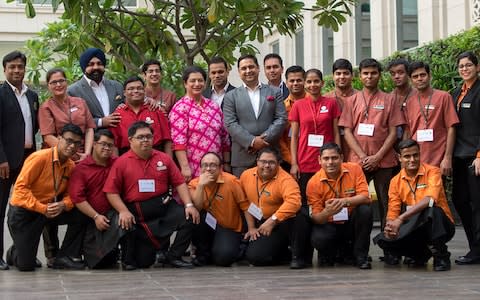
Now, Lemon Tree hopes to spread its positive message by educating and training other businesses – winning the Tourism for Tomorrow’s top prize today marks a big step in their journey towards making employment fairer across India.
Runners up:
Shanga by Elewana Collection, Tanzania
Reserva do Ibitipoca, Brazil
For a paradise island with sustainability at its core
Winner of the Destination Stewardship award: St Kitts Sustainable Destination Council, St Kitts and Nevis
Colonised after an expedition led by Christopher Columbus in 1493, St Kitts was cultivated for tobacco before shifting to sugar cane production in 1640, an industry that fuelled the large-scale importation of African slaves. For 365 years, sugar production was at the heart of everything in St Kitts; it was even nicknamed ‘Sugar City’. However, towards the end of the 20th century the sugar industry slowed down and in 2005 the government closed the last of the country’s plantations. From this moment, St Kitts would become a tourism economy.
Visitor numbers quickly boomed on the idyllic Caribbean island, from 350,000 per year in 2005 to over a million by 2015. But the Ministry of Tourism quickly realised it needed to develop a sustainable tourism strategy which would be both ‘pro-planet’ and ‘pro-people’ to ensure tourism was benefiting, not harming the island. The St Kitts Sustainable Destination Council (SDC) was born to help realise this goal.
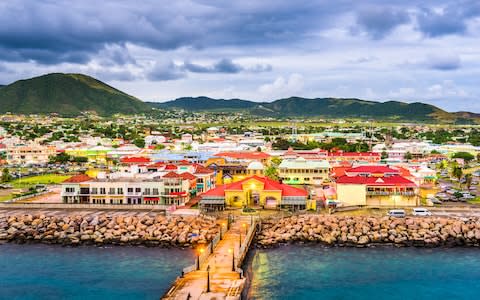
So what does this mean for us, the visitor? The Rail to Trails project, for example, has transformed a 100-year-old plantation railway into a new 22km hiking and biking trail. What was once a disused relic of a bygone industry has been transformed, acknowledging the past while also looking to the future.
There are also beach clean-ups and waste management projects to ensure that every soul on St Kitts, whether a resident or a leatherback turtle, is not negatively affected by its burgeoning popularity. Today, 80 per cent of St Kitts’ residents believe tourism is more positive than negative – an incredible statistic for an island whose popularity trebled in a decade.
Runners up:
Masungi Georeserve, Philippines
Grupo Rio da Prata, Jardim and Bonito, Brazil
For an experience that benefits the local community
Winner of the Social Impact award: Awamaki, Peru
Awamaki is a non-profit organisation that helps Peruivan women to start up and run their own businesses, following founder Kennedy Leavens’ belief that “income in the hands of women is the best way to lift communities out of poverty.”
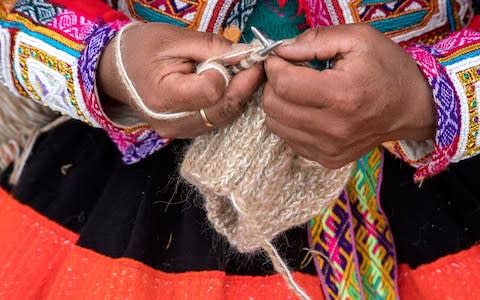
The organisation was founded in early 2009 to support a cooperative of ten women weavers from the rural community of Patacancha in the Andes. The project quickly grew, and today Awamaki helps to promote market access through fair trade cooperatives and sustainable tourism initiatives like weaving lessons. This ‘impact model’ allows independent businesses to thrive without the dependence on charity.
An international vision has been key to the success of the company. “Deepening our connections here in the US has been essential to our work selling the artisan products and bringing visitors to our work in Peru,” says Leavens.
Runners up:
Intrepid Group, Australia
Nikoi Island, Indonesia
For a once-in-a-lifetime wildlife experience
Winner of Changemakers award: SEE Turtles, USA
It’s an uncomfortable truth that six out of seven species of sea turtles are endangered due to the trade of their eggs, meat and shells. However, by unifying on-the-ground efforts through Latin America and the Caribbean, SEE Turtles has today saved over 1.7 million hatchlings and educated over 10 million people on how to help prevent the turtle shell trade.
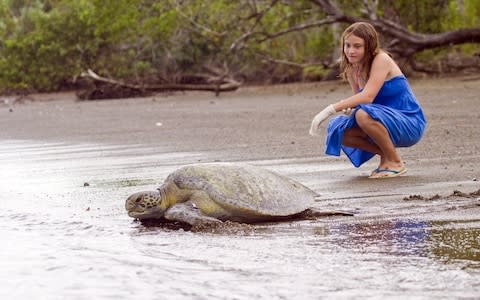
The organisation has trained more than 100 teachers and community leaders in turtle hot spots across the Americas, and has helped to fund field trips for over 2000 students. In its illegal turtle trade report, SEE Turtles identified 10,000 pieces of turtle shell for sale in eight countries.
How can you see the turtles for yourself? The SEE Turtles conservation tour calendar for 2019 includes trips to Costa Rica, Belize and Cuba. Or, to support the turtles from afar, an online pledge, at tooraretowear.org/pledge, encourages people to avoid turtle shell products.
Runners up:
Kelompok Peduli Lingkungan Belitung (KPLB) (Belitung Coastal Community Group), Indonesia
The Cardamom Tented Camp, Cambodia

